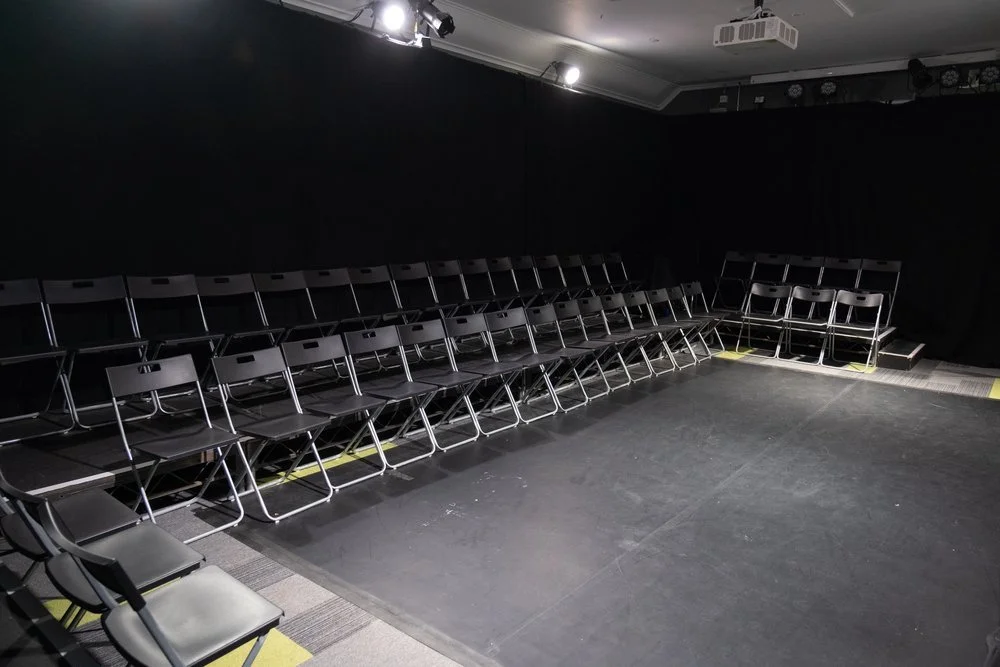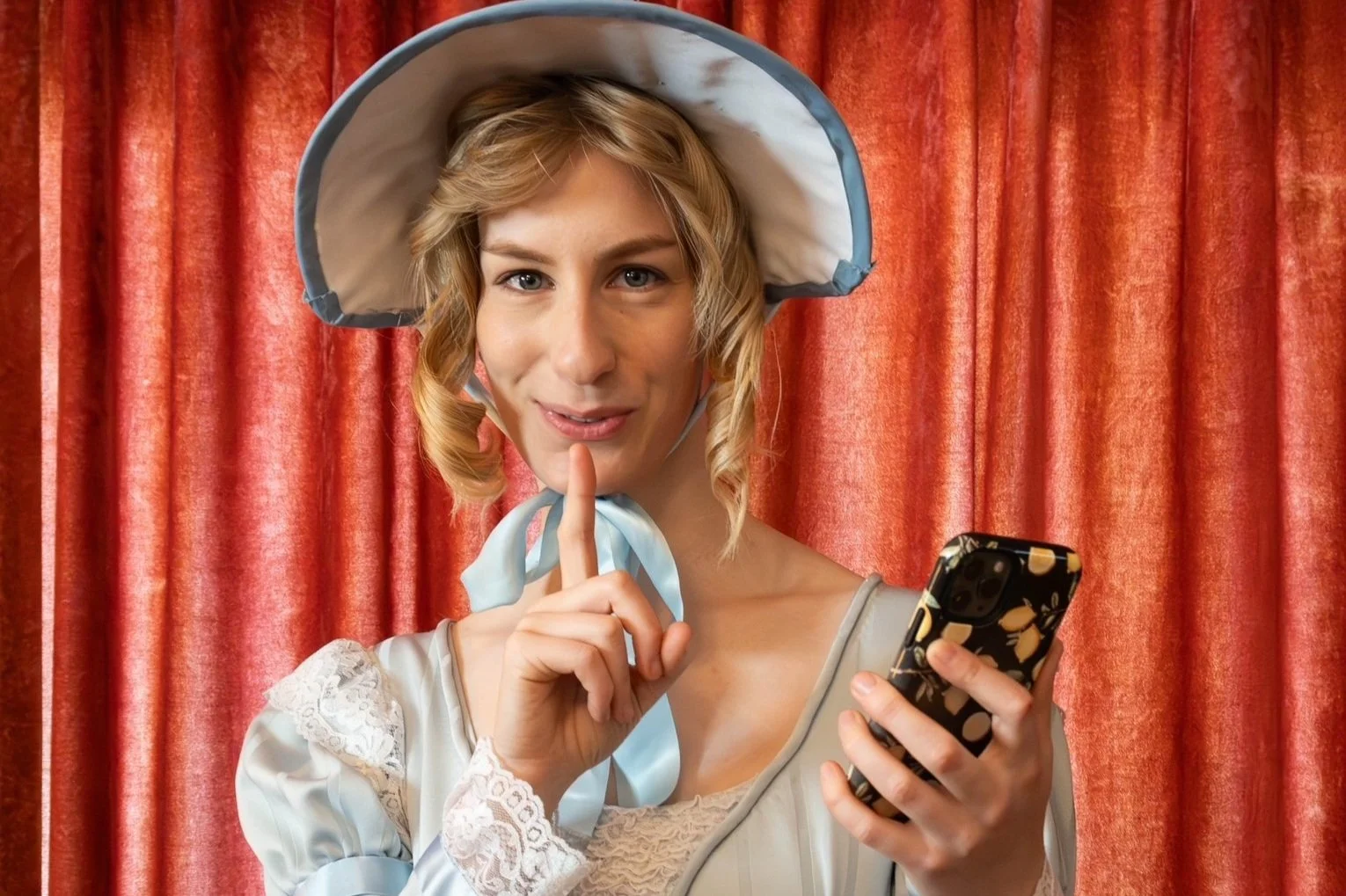Halfway through Edinburgh Festival Fringe, Vancouver's Zac Williams talks flyering and mini fridges
At one of the world’s biggest, most historic fringe-theatre events, the Canadian artist navigates highs and lows while performing his solo show Jack Goes to Therapy
Zac Williams in Jack Goes to Therapy: A (Somewhat) Romantic Comedy.
Edinburgh Festival Fringe presents Jack Goes to Therapy: A (Somewhat) Romantic Comedy at the ZOO Playground in Scotland to August 25
WHAT EXACTLY IS it like when a Canadian theatre artist takes their solo show halfway around the world to perform at one of the largest fringe festivals in existence?
Well, when Zac Williams speaks to Stir over a Zoom call from his rented accommodation in Scotland, he’s partway through a month-long stint at the Edinburgh Festival Fringe, and he certainly has answers.
Does he get his own bathroom? Yes. Has he performed to a sold-out audience yet? No. What’s the food situation like? Lots of instant oatmeal and £5 Meal Deals from Tesco (which, by the way, sound pretty good—the budget-friendly British grocery store is serving up everything from sandwiches to chicken rice bowls, with a drink and snack included, for less than nine bucks Canadian).
“It’s been such a whirlwind of highs and lows, and big dreams and ego checks and reality checks,” Williams tells Stir after performing his one-man play, Jack Goes to Therapy: A (Somewhat) Romantic Comedy, for the 11th time so far. “What really struck me was walking through the streets and seeing just how many posters for different shows there were. It kind of got me in my head thinking, How is anyone going to pick my show out of the mix when there’s close to 4,000 shows?”
It’s a jaw-dropping number, and it’s true. (For scale, there are about 74 shows playing at this year’s Vancouver Fringe Festival.) With a history that dates back to 1947, the Edinburgh Festival Fringe abides by an open-access model, which they describe as meaning that “anyone who has a story to tell and a venue to perform in” can stage their show at the annual fair. Artists have to apply to individual venues until their shows get accepted. By contrast, Canadian fringe festivals abide by a lottery system, meaning that every artist has an equally random chance of getting selected.
Every night till the Fringe closes on August 25, Williams is performing Jack Goes to Therapy in a 50-seat theatre at a venue called the ZOO Playground. The semi-autobiographical show revolves around a 29-year-old kindergarten teacher whose boyfriend leaves him for another man; grappling with heartbreak, he decides to enrol in therapy for the first time.
Williams began penning the script in March 2023, when he found out he would be performing at last year’s Vancouver Fringe Festival after previously being waitlisted. He had originally pitched the story as a “gay romantic comedy” about a man who falls in love with his best friend’s brother, but there was one small problem: Williams’ boyfriend had just broken up with him, and he was struggling to create the love-centric show he had once envisioned.
“I tried to sit down and start writing this romantic comedy,” Williams recalls. “But in my own personal life, I was dealing with this profound sadness and loss of this breakup that was very one-sided—I wanted to be in a relationship, he didn’t. And I had started going to therapy for the first time ever in my life.”
Shortly after that, Williams’ job as an elementary school teacher ended sooner than expected when the educator whose leave of absence he was covering came back early. With newfound time to spare, he decided to take a hard pivot and booked a spontaneous trip to Rome, where he spent three weeks in Italian cafés writing Jack Goes to Therapy. He dropped the old plotline and instead, allowed the show to hone in on a man’s post-breakup self-discovery journey that paralleled his own.
“It became more and more about me, but I also was having fun writing some really, really ridiculous scenes—one’s set in an STI clinic, and one’s set in a shower when his roommate barges in,” Williams says. “And these things hadn’t happened to me in real life, so I didn’t want to have people believe that this was entirely my story.…I found a balance between making it truthful of my experiences, but also elevating the story in the sense of upping the stakes for the drama of it.”
The ZOO Playground theatre in Edinburgh, Scotland, where Zac Williams is performing Jack Goes to Therapy.
At the Edinburgh Festival Fringe, one venue often contains several theatres within it; the ZOO Playground has six. Before being offered a 7:20 pm time slot there, Williams applied to some of the Fringe’s most renowned venues—Assembly, Gilded Balloon, Underbelly, and Pleasance—which are massive hubs in the city, some containing upwards of 20 theatres each with beer tents, lit-up courtyards, and the likes. But he was eventually rejected from each of them; as it turns out, it’s incredibly difficult to secure a spot at those high-demand venues, especially as a solo artist.
Securing an accommodation goes hand in hand with nailing down a venue. Williams used Theatre Digs Booker (a service comparable to Airbnb for theatre artists) to find his room, which comes with a coveted mini fridge and microwave. But the grim reality is that the stay is “extortionately expensive”, as the artist puts it—he’s paying $4,500 for a one-month rental.
“It’s nice to have a spot to decompress, but it’s certainly not cheap to be an artist here,” Williams reflects. “One of the frequently asked questions—the first one on the Edinburgh Fringe website—is ‘Will I make money?’ And they said, ‘Do not expect to make money at the Edinburgh Fringe.’ I kind of went into this knowing that… But it doesn’t look like I’m going to come close to breaking even, or even paying for my accommodation. But it’s kind of what you sign up for, I guess.”
Getting an audience in Edinburgh, it seems, is the difficult part. In total, artists from 58 countries will perform more than 52,000 times over the course of this month—and with that volume of shows taking place, word of mouth only goes so far. Artists have to master a particular skill in order to secure a crowd: Flyering. Along the famed Royal Mile (a touristy thoroughfare that links Edinburgh Castle with the Palace of Holyroodhouse), hundreds of theatre professionals dole out flyers for their shows to passers-by, hoping some of them will take the bait and stop by that night.
“Everyone’s always talking about, ‘How are you flying? Where are you flying? Who are you flying to?’” Williams shares. “I kind of naively printed 600 flyers, and learned that some people printed like 6,000 flyers. So it was tough.… I’m learning now that I need to go out into the streets and really tell people about my show.”
Williams was born and raised in Caledonia, Ontario, and attended McMaster University in Hamilton before pursuing a master’s degree at East 15 Acting School in England and then moving to Vancouver. He’s an experienced fringe-goer, having performed at the Vancouver Fringe Festival and Hamilton Fringe Festival twice, respectively—but Edinburgh is a beast of its own.
Zac Williams. Photo by Arjun Malik
On the first night of Jack Goes to Therapy, there were 10 people in the audience, including one of Williams’ best friends who flew in to see the show with her boyfriend and sister. From there, attendance has varied; there might be five people one night, and 14 the next.
“I don’t want to have people think that the Fringe is this glorious Disneyland of the arts,” Williams says. “It is tough work, and there are a lot of artists out here who are making big financial risks that don’t really pay off. I’m definitely coming out of this at a loss financially, but I’m keeping my spirits up and just enjoying everything that I can take out of the experience.”
What’s next for Williams? After the Edinburgh Festival Fringe is over, he won’t be flying home to Vancouver. Instead, he’s taking the train to London, where he’ll begin a school teaching job in September under a two-year youth mobility visa.
Though it hasn’t been easy, the artist says he’s walking away from the Fringe having gained a few genuine friendships, and feeling inspired to create more theatre works in the future. He’s also had a few reviewers come to see Jack Goes to Therapy, which he’s been avidly documenting on Instagram—something he says will help him stage the show again in the future.
“There’s such an energy in the streets of people who are just celebrating art, and here to have a good time,” Williams says. “The artists are really supportive of each other. There are Facebook groups where someone says, ‘Hey, I really haven’t sold any tickets to this show, if any artists can come and fill some seats.’ So there’s this cooperative mentality.
“But I really am just loving seeing other shows,” he continues. “I’ve seen other one-person plays, and I think ‘What are they doing well? What are they doing that’s pulling me in and keeping my attention held, and how can I think about that in my own writing?’ It’s a full-on experience, and it’s super, super intense. Everyone says when it ends, the post-fringe blues are real, which I can see is probably a thing because it’s really, really fun just being here, going to see shows, and being in the streets. There are street performers everywhere, juggling and singing—it’s just such a fun, fun place to be.” ![]()
















